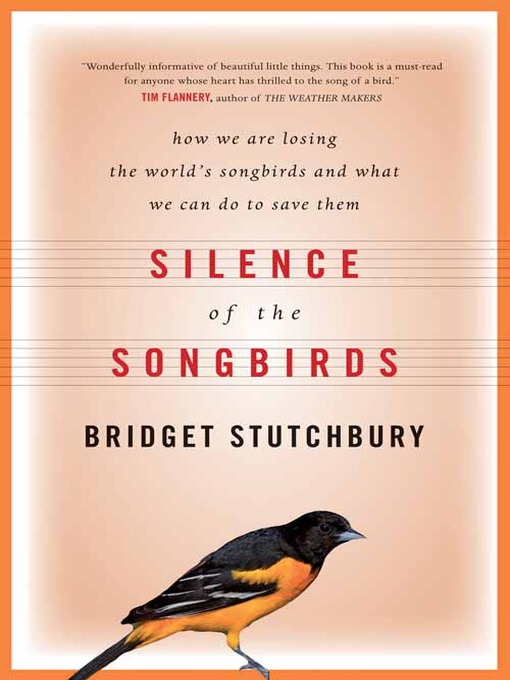
Silence of the Songbirds
How We Are Losing the World's Songbirds and What We Can Do to Save Them
کتاب های مرتبط
- اطلاعات
- نقد و بررسی
- دیدگاه کاربران
نقد و بررسی

March 19, 2007
Stutchbury, an avid bird researcher and biology professor at York University in Toronto, paints a complex picture of the current condition of songbirds and their habitats. The bad news is that songbird populations are decreasing alarmingly due to industrialization and development. In their tropical winter homes, habitat is shrinking and farmers routinely apply fatal amounts of pesticides. In songbirds' North American breeding grounds, invasive cowbirds sneak into their nests and replace songbird eggs with their own, house cats kill millions every year and logging threatens the birds' boreal forest homes. During their long, always treacherous migrations, they encounter many 21st-century perils: city lights that distract from guiding stars, and perilous radio towers and wind turbines. Songbirds control insects and helping plant propagation through pollination and seed spreading in many ecosystems. As they diminish in number, fragile environments may be "shaken to the core." The good news is that we can help the birds survive, by buying shade-grown coffee and turning out city lights at night, among other ways. Stutchbury's affection for the birds is contagious, and her humorous descriptions of their habits may inspire readers to listen for a cardinal's "cheer, cheer, birdy-birdy-birdy" or a barn owl's "WHO cooks for YOU?"

April 30, 2007
Stutchbury, an avid bird researcher and biology professor at York University in Toronto, paints a complex picture of the current condition of songbirds and their habitats. The bad news is that songbird populations are decreasing alarmingly due to industrialization and development. In their tropical winter homes, habitat is shrinking and farmers routinely apply fatal amounts of pesticides. In songbirds' North American breeding grounds, invasive cowbirds sneak into their nests and replace songbird eggs with their own, house cats kill millions every year and logging threatens the birds' boreal forest homes. During their long, always treacherous migrations, they encounter many 21st-century perils: city lights that distract from guiding stars, and perilous radio towers and wind turbines. Songbirds control insects and helping plant propagation through pollination and seed spreading in many ecosystems. As they diminish in number, fragile environments may be "shaken to the core." The good news is that we can help the birds survive, by buying shade-grown coffee and turning out city lights at night, among other ways. Stutchbury's affection for the birds is contagious, and her humorous descriptions of their habits may inspire readers to listen for a cardinal's "cheer, cheer, birdy-birdy-birdy" or a barn owl's "WHO cooks for YOU?"

























دیدگاه کاربران